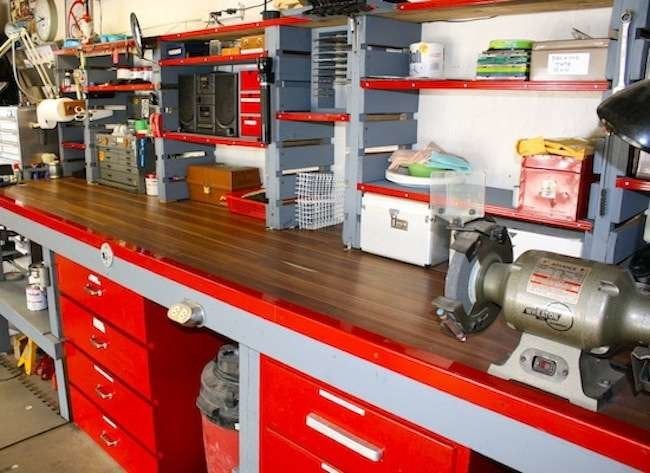We may earn revenue from the products available on this page and participate in affiliate programs. Learn More ›
The Attic Workshop
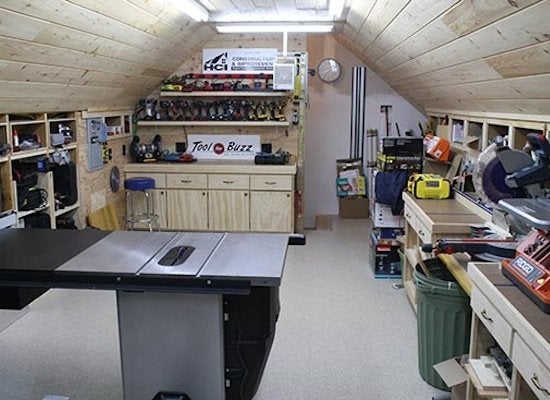
Considering an attic workshop? First, make sure your attic is tall enough. Will you be able to stand, or haul in tall wooden boards? Next, consider your access route: Steep stairs are risky when you’re moving heavy materials, tools, and finished projects. And don’t forget to test your attic floors to be sure they’re strong enough to support your new workshop, and ensure proper ventilation by installing an exhaust fan. To learn more about Todd Fratzel’s attic workshop, visit Home Construction & Improvement, one of several sites he’s created.
Bedroom Workshop
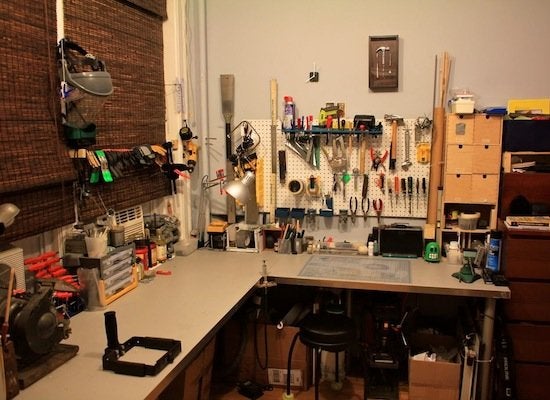
instructables.com/member
/chriszep
Most of us wouldn’t consider putting a home workshop in our bedroom, but for this college student it seemed like the most practical option. An easier choice for many homeowners would be to set up shop in a spare bedroom or office. That way concerns like safety, noise, and air quality won’t disturb the space where you lay your head each night.
Backyard Workshop
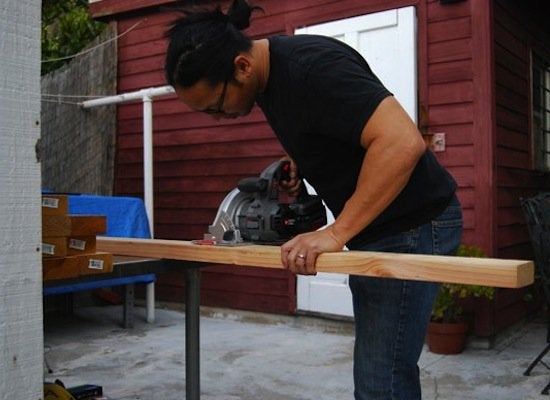
If you’re lucky enough to live in a warm climate, as does Timothy Dahl, creator of Charles and Hudson, your best bet for a workstation might be your own backyard. If your tools are really loud, maintain good relations with the neighbors or you could cause trouble on your block. Also, keep an eye on the weather forecast and make sure you have an indoor space to store supplies and tools to prevent the elements or pests from disturbing your labor.
Outbuilding
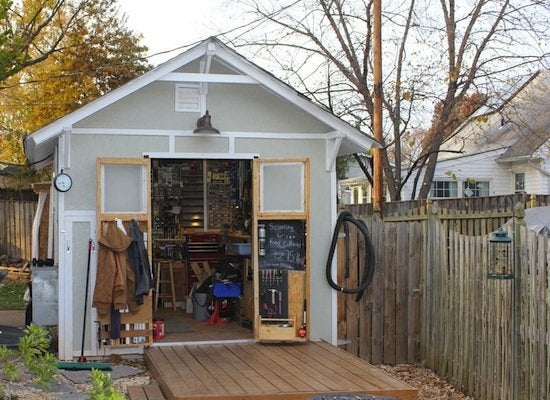
instructables.com/member/bizydad
If you’re serious about your craft—or your family members are seriously tired of tripping over scrap wood—a freestanding workshop might be for you. This option gives you complete creative control—you can choose to buy a prefab shed or build your own shop from scratch. Make sure you allow for plenty of natural or electric light, and build in proper ventilation for safety.
Basement
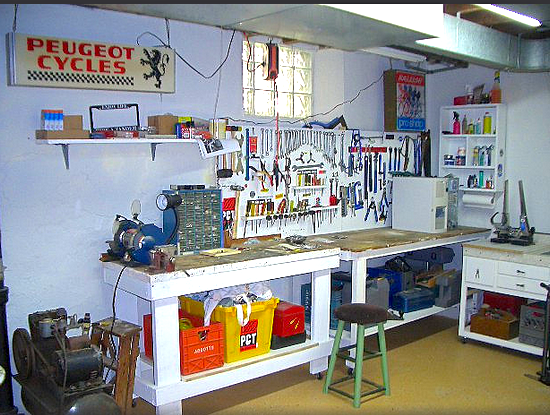
flickr.com/photos/fixedgear
The basement workshop is a familiar habitat for many weekend warriors. This location is perfect because it’s secluded from the rest of the home, so it allows for an element of soundproofing and keeps sawdust out of the house. It also, however, offers a unique challenge: dampness. Make sure you have good ventilation and a dehumidifier, if necessary, because too much moisture can ruin your tools in no time.
Garage
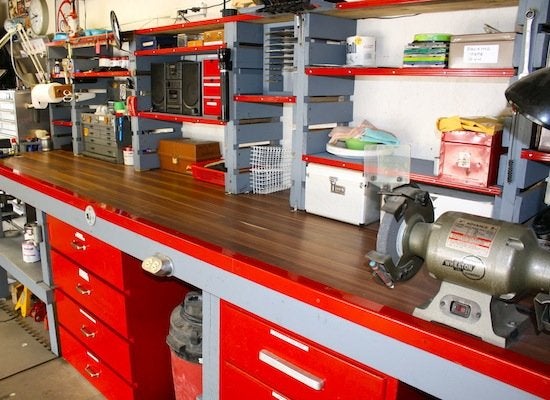
instructables.com/member/DoDo729/
A garage workshop is great because it’s relatively separate from the house, and garage doors allow easy access when bringing in new woodworking machinery. Many garages also offer ample space for built-in tool storage and a workbench without eating into your car’s parking spot.
Compact Workshop
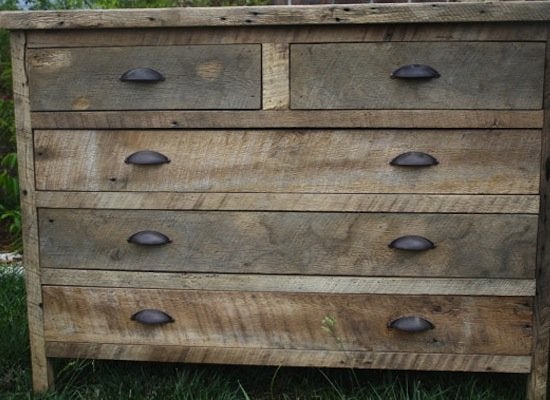
etsy.com/shop/timelessjourney
If you’re short on space, why not consider converting an old dresser into a mini workshop? Drawers underneath offer storage space, and a large hardwood top can serve as your workbench. Plus, it’s so compact that you can keep it almost anywhere and pull it out only when you need it.

A DIYer’s Guide to Replacing Flooring
Update the look and feel of any room by replacing old, worn-out flooring. These products and straightforward steps make it easy enough for any handy homeowner to do.

